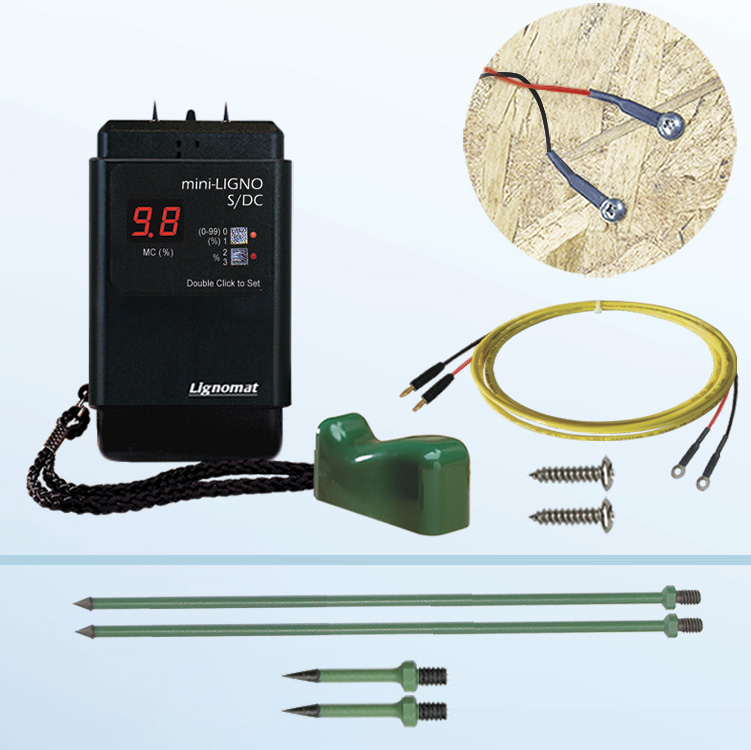How a Moisture Meter Can Help You Maintain Optimal Conditions in your house or Workplace
How a Moisture Meter Can Help You Maintain Optimal Conditions in your house or Workplace
Blog Article
Look Into the World of Moisture Meters: Everything You Need to Know
In the world of moisture meters exists a globe of precision and usefulness that typically goes undetected. Comprehending just how moisture meters run, the different types readily available, and their diverse usages can lose light on their significance in making certain quality and performance.
Exactly How Moisture Meters Work
Moisture meters run by measuring the electric conductivity or capacitance of products to determine the wetness web content present. These meters are indispensable devices across numerous industries, including woodworking, agriculture, and building. By making use of various methods such as pin-type or pinless innovation, wetness meters give exact readings that help professionals make notified decisions.
Pin-type wetness meters function by placing the sharp pins into the material being evaluated. On the other hand, pinless moisture meters make use of electro-magnetic signals to scan a bigger area without causing any damages to the product's surface.
Despite the method made use of, dampness meters play a crucial role in preventing concerns such as mold and mildew growth, architectural damages, or product defects brought on by excess dampness. Recognizing exactly how these meters work is essential for making certain the high quality and integrity of products in different applications.
Types of Moisture Meters
Given the essential function moisture meters play in numerous markets, it is vital to recognize the different kinds offered to professionals for properly examining moisture degrees - Moisture Meter. There are primarily 2 main kinds of moisture meters: pin-type and pinless moisture meters

On the other hand, pinless moisture meters utilize electromagnetic sensing unit plates to scan a bigger area of the product without causing any kind of damage. This kind appropriates for promptly scanning big locations and is typically made use of for flooring, wall surfaces, and ceilings. Pinless meters are practical for taking readings on finished surface areas without leaving any noticeable marks.
Both types of dampness meters have their advantages and are selected based upon the certain needs of the job handy. Understanding the differences in between these types is vital for specialists to make accurate dampness evaluations.
Applications Throughout Industries
With diverse performances, dampness meters find extensive application throughout numerous industries, helping specialists in ensuring ideal problems for materials and structures. In the farming sector, moisture meters are vital for establishing the moisture material in grains, seeds, and hay, making certain quality control and avoiding mold development. Building and construction specialists rely upon moisture meters to evaluate the wetness levels in structure products like concrete, drywall, and timber, which is crucial for maintaining structural honesty and preventing problems like rot or mold. The flooring sector uses dampness meters to gauge the dampness content in subfloors prior to mounting numerous flooring, protecting against pricey problems because of excess wetness. Additionally, in the food market, moisture meters are used to monitor and control moisture degrees in items such as grains, nuts, and dried fruits to maintain freshness and top quality. Additionally, dampness meters play an essential function in the remediation and damage control market by helping specialists address and recognize water damage in buildings without delay. Across these diverse markets, moisture meters are indispensable devices for guaranteeing the top quality, security, and longevity of numerous materials and items.
Tips for Making Use Of Moisture Meters
When gauging the dampness content in various materials,Use the dampness meter's calibration setups to ensure precise readings. you can try here Calibration is vital for the correct functioning of a moisture meter. Before each use, it is a good idea to examine and readjust the calibration setups according to the specific material being tested. Additionally, see to it the meter is readied to the right wetness variety for the product you are gauging to get one of the most specific outcomes.
When utilizing a pin-type moisture meter, insert the pins to the appropriate deepness advised for the material being evaluated. This guarantees that the moisture analyses are extracted from the right depth within the material, giving a more precise representation of its dampness content. For pinless wetness meters, bear in mind to maintain appropriate call with the product's surface area to obtain trusted analyses.
Regularly examine and replace the batteries in your dampness meter to stop inaccurate find out here now analyses due to reduced power. Store the meter in a completely dry and safe location when not being used to extend its lifespan and preserve its precision. By following these ideas, you can optimize the efficiency of your moisture meter and get precise wetness web content measurements across various products.
Maintenance and Calibration
To make certain the precision of dampness web content dimensions, normal upkeep and calibration of the dampness meter are crucial actions in its correct performance. Calibration changes the wetness meter to guarantee that it offers constant and reputable results.
Calibration needs to be done periodically, specifically if the wetness meter is used regularly or in vital applications where precise dimensions are required. By calibrating the dampness and preserving meter regularly, individuals can trust the precision of the moisture material dimensions acquired.
Verdict

To conclude, dampness meters play an essential function in numerous industries by precisely gauging the moisture content of materials. Recognizing just how these devices work, the various kinds readily available, and proper maintenance and calibration are necessary for getting dependable results. Whether in manufacturing, building, or farming, using moisture meters helps ensure quality assurance and effectiveness in processes.

In final thought, wetness meters play an essential role in various sectors by properly determining the moisture content of products.
Report this page